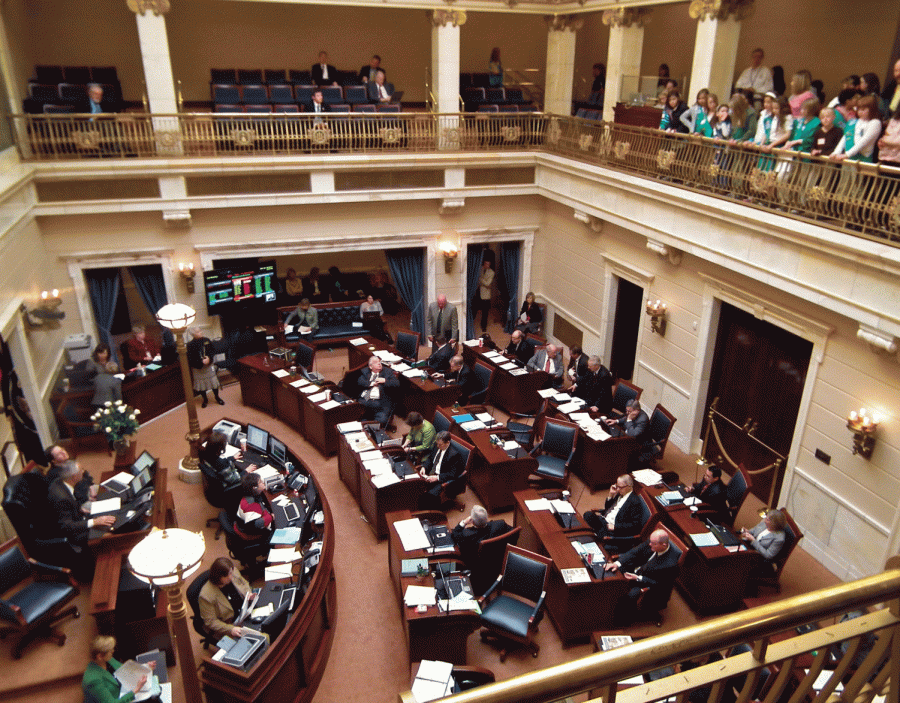What’s Left, Being Right: Midterm Election Predictions
What’s Left: More of the Same
Sid Wadhera, Class of 2017
As I’m writing this article, it’s Election Day, which means that millions of Americans are going out to vote for members of their state legislatures, governors, representatives and senators. Yet despite all the hoopla surrounding a possible Republican takeover of the Senate, one fact remains true: nothing is really going to change. The House of Representatives will stay Republican, and even if the Senate does switch parties, it won’t mean anything for either party’s agenda or for real progress.
The very manner in which our Federal government is constructed challenges the likelihood for one election to vastly change the nation. And, for the most part, that’s a good thing, but this time it’s not. There are three main aspects to consider here: first, Senate rules; second, presidential vetoes; and third, intra-party conflicts.
The first factor inhibiting change is the general rules of the Senate. The basic problem that any party comes across is that to fully pass any legislation one needs 60 votes. In order to end debate on a piece of legislation in the Senate (a move called cloture) you need to have 60 votes. Even if the Republicans did win it is unlikely that they will get the necessary 60 seats to invoke cloture on any piece of legislation. That means that we should all prepare ourselves for long-winded Democratic filibusters. It seems that whichever party is opposing in the Senate is also obstructing. Additionally, the Senate Majority leader has control over what goes on the legislative calendar. It will be surprising to see if Mitch McConnell puts anything bipartisan up.
The second inhibiting factor is the presidential veto. In his six years, President Obama has only used his constitutionally-granted veto power twice. Comparatively, in eight years, George W. Bush used it 12 times and Bill Clinton used it 36 times. The reason that Obama has not frequently used the veto is because he has Harry Reid in the Senate blocking any Republican legislation from the House. Effectively, Congress used to be able to stall on legislation, and Obama was free to pontificate from the bully pulpit about Congressional inefficiency. With the Senate likely to be run by Mitch McConnell starting in January, there will be a rise in vetoes. If somehow McConnell is able to get past Democratic obstructions in the Senate through Senate rules, he then has to get it past President Obama’s veto. On some big ticket items that Republicans are guaranteed to pass (such as defunding or repealing Obamacare), there is a 100 percent chance of a veto. Unfortunately, that means little to nothing getting done and more of Obama lambasting Congress from the presidential bully pulpit.
The final inhibiting factor is intra-party conflict, which will come to a head in the Senate for both parties. For Republicans, intra-party conflict is between the Tea Party and the Establishment. We’ve seen this conflict come to a head multiple times in the past, where certain senators break the party line. Of course all of this is for show; most of those Senators are predicted to run for President in 2016, and it will be interesting to see how they try to differentiate themselves in the primaries. For the Democrats, intra-party conflict will be between Progressives and the Establishment. Already, there are winds of progressive (specifically economically progressive) discontent within the Democrats. It will be interesting to see how economic progressives like Elizabeth Warren react to even more conservative legislation coming on to the Senate floor, especially as Democrats continue to move in a more progressive direction in terms of economics.
So here’s the bottom line: Republicans will have won the Senate on Tuesday, and that’s not going to change much. For the next two years, there will be more of the same ineffective governance in Congress. What is important to see here are the implications this has for America; namely that the United States now apparently needs unified government in both houses of Congress and the Presidency to get anything done (time for Parliament and a Prime Minister?), and that continued dysfunctional government will only make voters more disaffected. And that is the biggest problem. Disaffected voters also tend to be moderate. As they leave the system because of inefficiency and hyper-partisanship, they take their moderate views with them. All that’s left is hyper-partisanship, which leads to less working together, which leads to more disaffected voters. It’s a vicious cycle, and this election is no different. The winner does not matter, because either way the real loser is the American people.
Being Right: GOP Gaining Ground
Olivia Detato, Class of 2017
The midterm elections were this Tuesday and the Democrats seemed to be in a precarious state. Many polls showed GOP candidates to be in the lead or in very good positions to overtake their Democratic counterparts.
Approaching Election Day, Iowa seemed to be slipping away from the Democrats. A poll taken this past weekend showed that Republican Joni Ernst had a seven point lead over Democratic candidate Bruce Braley. Additionally, Republicans gained solid ground in the states of Georgia, Kentucky and Louisiana, according to polls. In Georgia, Republican incumbent Nathan Deal had a strong lead over Democrat Jason Carter, with 48 to 43 percent in the governor’s race. Furthermore, Republican David Purdue had a four point lead over Democrat Michelle Nunn, but this poll’s margin of error is plus or minus four points. With last minute campaign efforts, Purdue had a strong chance of winning coming in to Election Day, with about four percent of voters undecided. In Kentucky, Republican Mitch McConnell led Alison Lundergan Grimes by a whopping nine points (50 to 41 percent). It appears that Obama’s low approval rating in the state of Kentucky (a mere 35 percent) is proving devastating for Grimes. Lastly, Republicans had an opportunity to steal Louisiana. Democratic Senator Mary Landrieu was short of the majority that she would need to win, with only 44 percent vote-share. With GOP Representative Bill Cassidy and Republican Rob Maness combined to share the majority of votes (with 36 percent and 15 percent respectively), the GOP certainly had the potential to overtake Landrieu.
Obama chose to focus his campaigning efforts on gubernatorial races. Obama spent Sunday in Connecticut campaigning for Governor Daniel Malloy who is in a tight race with Republican candidate Tom Foley. Former President Bill Clinton was in his home state of Arkansas on Sunday to help the Democratic campaign as well. Former Secretary of State Hilary Clinton campaigned for New Hampshire’s Democratic Senator Jeanne Shaheen and Governor Maggie Hassan.
Sarah Palin, Jeb Bush and Texas Senator Ted Cruz have all made key appearances to help with GOP campaigns. Former Massachusetts governor and 2012 presidential candidate Mitt Romney predicted that the GOP will make significant gains in the mid-term elections this week. If the GOP does in fact manage to make significant gains in Congress, it will put pressure on the Obama administration to pass substantial immigration reform that comprises the bolstering of border security, as opposed to granting mass amnesty.
With all the political turmoil brewing in Washington, I myself would not be surprised by a Republican takeover. The Islamic State of Iraq and Syria continues to be at large in the Middle East and the president is refusing to take further action. Additionally, with increased cases of Ebola being reported in the United States, President Obama continues to allow the border to remain open. Countries such as France, Australia and even Canada have closed their borders to flights arriving from countries in West Africa inflicted with the Ebola epidemic. Even though many in Congress pressured the Obama administration to take action regarding the border, they failed to follow suit of other developed nations. Additionally, there is a stalemate regarding illegal immigration policies that reflects poorly upon the
Obama administration.
If the GOP gains ground, it will prove interesting in the upcoming 2016 presidential election. With presidential approval ratings dropping, a GOP sweep in this midterm election will be a huge wake up call to the Democratic party.















